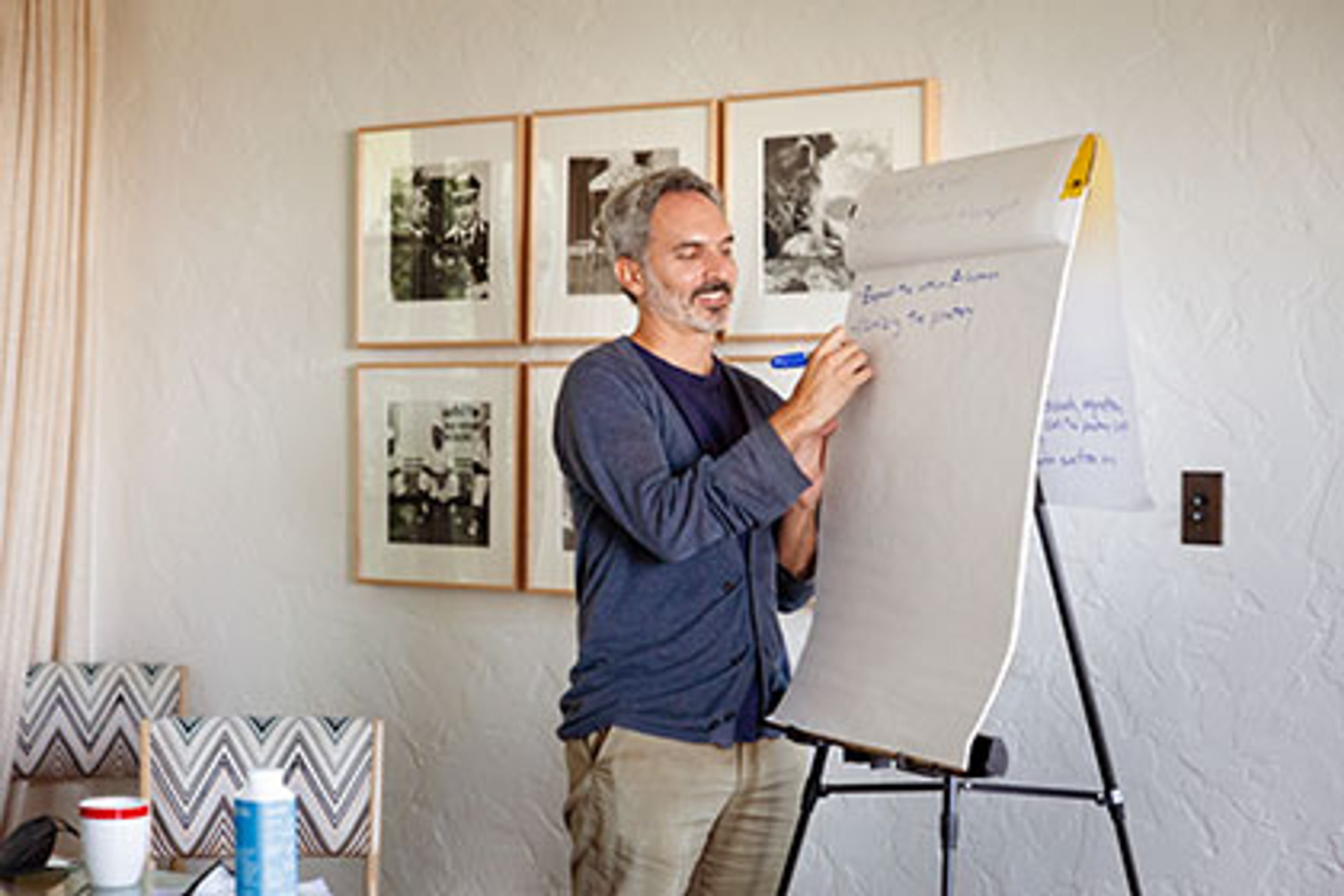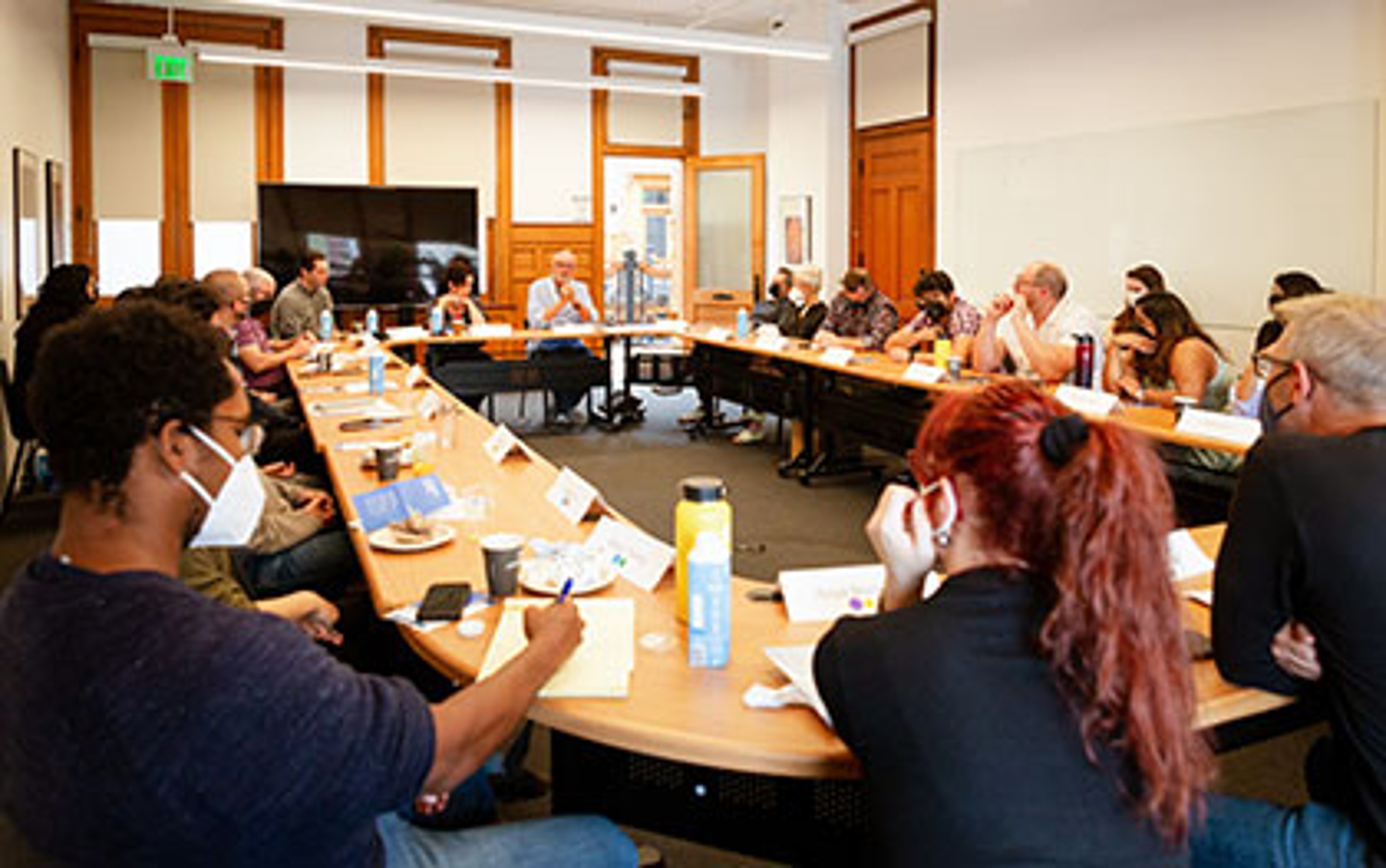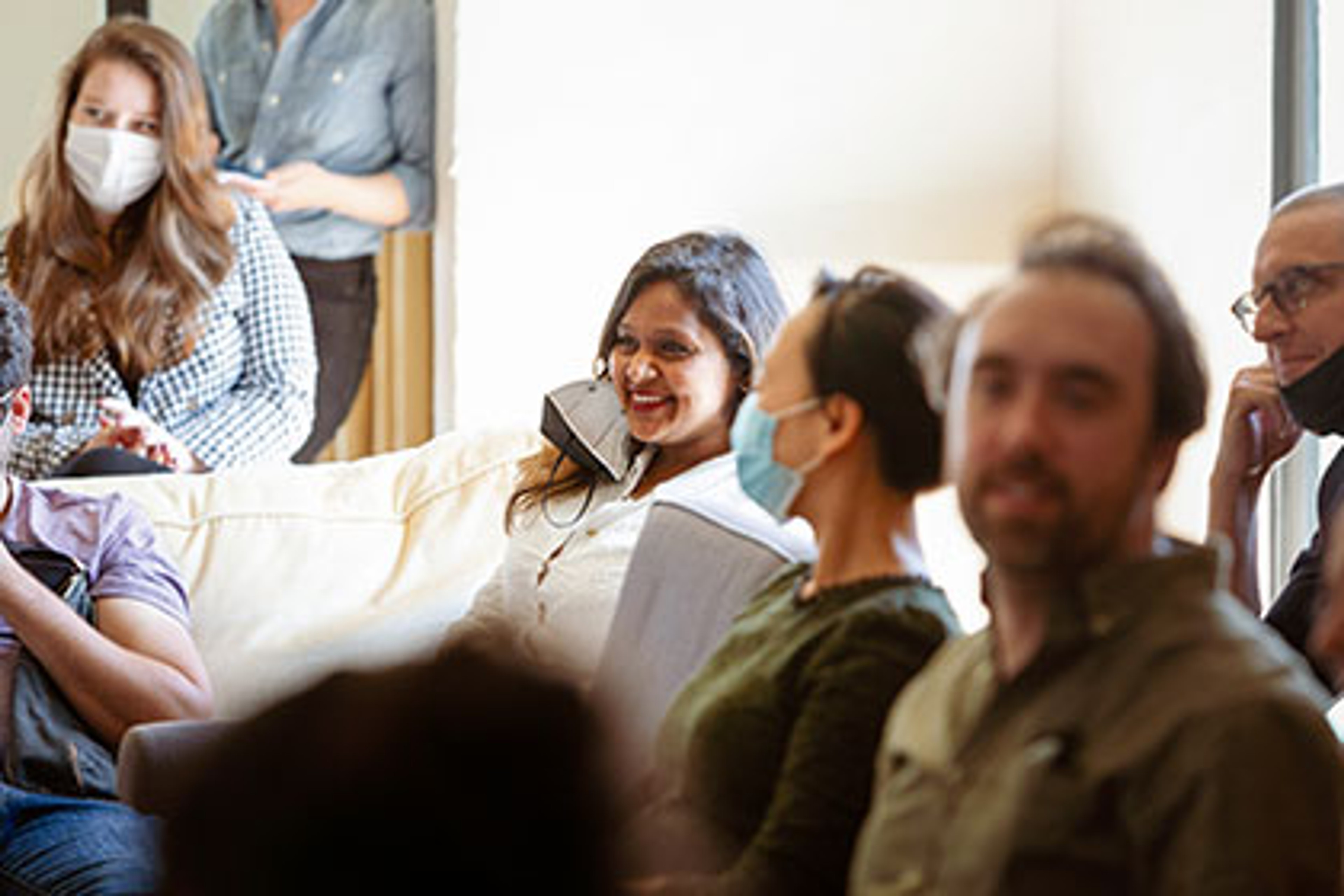Berggruen Fellows Aim to Reinvent Governance, Imagine Radically Different Futures for Global Systems and Institutions

With its seventh fellowship cohort the Berggruen Institute deepened its longstanding support of highly imaginative ideas about global systems and institutions. Over the last year Fellows worked on ideas for governance of politics, economics, and society that fundamentally challenge status quo practice and biases.
Examples include:
- Advocacy for “deep time thinking,” or the practice of using millennia-long timescales by policymakers
- Principles for the design of a global monetary system that prioritizes health and welfare
- Anthropological research into the implications for the experience of living in cities of electric technologies crucial to the green transition
- Workshops to help community groups and urban planners visually represent different possible futures to guide decision making
“In politics and elsewhere, human ideas have not caught up with dangerous new realities such as climate change, the pandemic, and renewed rivalry among nuclear powers,” said Nils Gilman, vice president of programs at the Berggruen Institute. “These fellowship projects are accelerating the crucial process of idea formation in response to a world we are still in the early phases of understanding.”
Founded in 2010 by philanthropist and investor Nicolas Berggruen, the Berggruen Institute develops the foundational ideas and critical analysis needed to unlock enduring progress for political, economic, and social institutions in the 21st century. Since its inception, the Berggruen Institute has launched the 21st Century Council, the Council for the Future of Europe, the Berggruen China Center, the Think Long Committee for California, and the signature Berggruen Prize for Philosophy and Culture.

In partnership with the University of Southern California Dornsife Center on Science, Technology and Public Life (STPL), Berggruen Fellowships offer scholars flexible periods of work and study in both the United States and China. Fellowship projects extend and collaborate with the Institute’s core work themes: the Future of Capitalism, the Future of Democracy, the Planetary, and Future Humans. Projects include lectures, books, scholarly workshops, colloquia, and academic articles. The Berggruen Institute China Center maintains its own cohort of Fellows focused on the long term philosophical implications of transformative technologies.
“Ideas that have led to great progress were often at one point highly unorthodox for their time, taking into account changes in the human experience unleashed by new technology and scientific knowledge,” said Gilman. “We think the kind of ideas we’re supporting could be crucial for planetary flourishing in this century and beyond.”

Projects completed or underway from 2021-2022 Berggruen Fellows include:
Carsten Berg observed and assessed one of the world’s largest experiments with citizens’ assemblies, drawing lessons for how this radical form of democracy could work for transnational policymaking.
Jonathan Blake completed drafting a book he is co-authoring with Berggruen Institute Vice President of Programs Nils Gilman on planetary governance.
Dominic Boyer launched a study of the opportunities and challenges facing “electrify everything”programs (e.g. gas-free buildings, electric transportation, distributed solar generation and storage) in American cities. This project will provide valuable insights to policymakers and communities engaged in decarbonizing their economies. He also completed a new book, No More Fossils, which explores the intricate influence of fossil fuels upon modern life and how those legacies can be broken.
Stuart Candy launched a long-term project on bringing foresight systematically into journalism with an editor from The New York Times, introduced experiential futures methods to teams of researchers at the World Economic Forum, advised on Berggruen Institute events in Los Angeles and China, and co-authored The Futures Bazaar, an open source design futures toolkit forthcoming from the BBC. He was also awarded the 2022 Core77 Speculative Design Award for Imagination is a Commons, a groundbreaking exploration of alternative scenarios for global development, commissioned by the United Nations Development Programme.
Devika Dutt wrote or co-wrote three papers exposing the harmful impact of global finance on emerging economies and imagining monetary policy designed for health, welfare, and equity.
Yael Eisenstat made numerous appearances in print, digital, and broadcast media discussing the impact of social media on democracy. She also led or participated in numerous public and private discussions with lawmakers and other stakeholders on the future of democracy in the digital age.
Peter Ekman completed a draft of a book on the conceptual underpinnings of urban planning, investigating the knowledge, expertise, and time scales that have historically guided cities as they look toward the future.
Johanna Hoffman completed her first book, Speculative Futures: Design Approaches to Navigate Change, Foster Resilience, and Co-Create the Cities We Need, out October of 2022. In addition to publishing papers on frameworks for using speculative futures tools – an array of design approaches used to create high-resolution visions of potential realities – to enhance collaborative capacities in urban planning and policy development, she also worked with community-groups in LA on using speculative futures to inform long-term strategic grassroots organizing efforts. Visions developed through those community collaborations inform a new suite of interactive installations to facilitate civic dialogue about preferable futures, available in October 2022.
Vincent Ialenti delivered over a dozen lectures and papers about the need for “deep time thinking,” in which policymakers use mental techniques to consider the world at millennia-long time scales. One notable case study for this advocacy was a story of exploding barrels of nuclear waste in Idaho.
Martijn Konings worked on a book and other projects related to the political economy of assets and wealth inequality.
Michael McCarthy began work on his book on the power of finance and the creation of alternative institutions that might democratize investment and credit allocation. He also organized the first in a series of workshops about the “coordination problem,” which reimagine the foundations of economic governance.
Robert Neuwirth extended research and reporting for his book about “bottom-down economics,” case studies of communities left behind by the global financial system that have created their own success through mutual self-reliance and support.
Mark Paul published several papers, including one critiquing the Congressional Budget Office’s models for estimating budgetary and economic impacts of legislation, and creating a new model that incorporates likely economic fallout from the impact of climate change. He also completed his book The Ends of Freedom, due out under University of Chicago Press in May of 2023.
Claire Webb organized and led What Will Life Become?, a workshop featuring deep conversation and artistic presentations on the implications of three technoscientific areas that are radically remaking what it means to be human: space exploration, multispecies mutualism, and artificial intelligence.
Alden Young is conducting a quantitative survey of young people’s attitudes towards climate change across the Middle East and in northeast Africa, with a research team of scholars from across the region. Survey results will be released in fall 2022.